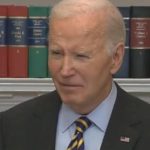- The future of NATO over the next decade could hinge on the outcome of two separate elections taking place outside of Europe in the next few days.
- The US presidential election and parliamentary elections in Georgia will both leave NATO’s European members with some hard decisions about their collective defense, writes Candace Rondeaux, a professor of practice at the Center on the Future of War, a joint initiative of New America and Arizona State University
- Visit Business Insider’s homepage for more stories.
The future of European security over the next decade could hinge on the outcome of two separate elections taking place outside the continent in the next few days.
One poll, the parliamentary elections in Georgia on October 31, could very well shape whether and when NATO next goes to war. The other, the presidential election in the United States on November 3, will likely determine if NATO’s trans-Atlantic alliance even survives.
Whatever the outcome in both cases, it’s a foregone conclusion that come 2021, NATO’s European members are going to have to make some very hard decisions about their collective defense.
After enduring four years of withering criticism from President Donald Trump, America’s NATO allies in Europe have good reasons to worry about the outcome of the US presidential race. Trump’s reelection could throw the world’s oldest military alliance into even deeper disarray.
On the other hand, a win for former Vice President Joe Biden could revive hopes for stronger trans-Atlantic defense ties at a time when relations between Brussels and Washington and security on the European continent have never been more precarious.
Back before COVID-19 ripped a giant gash in the global economy, and before that, when everyone still thought the idea that America would elevate a B-list reality-TV star to the presidency was a joke, NATO member contributions on defense spending weren’t exactly at the top of Europe’s agenda.
Now, however, the trans-Atlantic alliance is facing even stronger headwinds amid great political upheaval in America, a global economic recession, and growing insecurity in Russia’s traditional spheres of influence along its southern and western borders.
A Biden win might temporarily tamp down criticism from the White House about defense spending among NATO members, but it is unlikely to silence fiscal conservatives on either side of the aisle in Congress who have long complained that NATO’s European partners are fleecing America.
A Trump win all but ensures more domestic and diplomatic bumbling at a time when most of America could still be reeling from the political violence that may be triggered across the country, whether Trump secures a second term or not.
Whatever happens in the US, nothing will likely change the near-term trajectory of the roiling conflict between Azerbaijan and Armenia over the disputed region of Nagorno-Karabakh, where NATO member Turkey is waging a proxy war with Russia.
The Kremlin is clearly rattled. It has begun to publicly link this standoff in the Caucasus with the continuing crisis over President Alexander Lukashenko’s insistence on staying in power in Belarus after two months of mass protests following his dubious election win.
As evidenced by Russian Defense Minister Sergey Shoigu’s claims that recent NATO exercises in Baltic states on Belarus’ border are a sign of a Western military buildup, increased paranoia from Moscow is probably not great news for Europe.
Meanwhile, Russia’s anxiety over the situation in its neighborhood is already having a spillover effect elsewhere in the Caucasus in neighboring Georgia, where millions of voters will cast ballots Saturday in elections under a new constitutional framework.
With NATO Secretary General Jens Stoltenberg calling on Russia once again this week to pull its forces out of Georgia’s breakaway regions of Abkhazia and South Ossetia, and encouraging Georgian leaders to prepare for NATO membership, how those elections play out could be an even bigger determinant in the next chapter of NATO’s 70-year history.
Georgia’s new constitutional framework was adopted after widespread anti-government protests in the capital, Tbilisi, last year, and were followed by changes to the electoral system in March, which will allow for more proportional representation in Georgia’s 150-member Parliament. The new electoral rules significantly reduced the barriers for Georgian parties and political aspirants to compete in elections, and they have set Georgia on a path to adopting a fully proportional voting system in 2024.
In theory, the new reforms will also allot more power to smaller political parties, while devolving more power locally. The progressive steps toward more representative government should end virtual single-party rule in post-Soviet Georgia, since any party wishing to form its own government would have to win 40.6% of the vote.
Given that at least 41 different parties had already been registered by electoral authorities by August, it seems likely that the ruling Georgian Dream party and its biggest opposition challenger, the United National Movement, will probably have to share power with a bevy of smaller political factions.
All of this is critical to moving Georgia’s political system out from under the shadows of a Soviet-influenced governing structure and putting the tiny republic in the Caucasus Mountains more in line with the European countries with which it has close ties.
Moreover, from a NATO perspective, a successful political transition under this new dispensation would also help Georgia meet a key requirement for the country’s eventual ascension to the alliance.
REUTERS/Maxim Shipenkov/Pool
The Kremlin, of course, takes the opposite view. Moscow’s deep-seated antipathy for the United National Movement’s exiled standard bearer and pro-NATO champion, former Georgian Prime Minister Mikheil Saakashvili, is only slightly outdone by its gleeful support of the ultranationalist Alliance of Patriots of Georgia and the Democratic Movement-United Georgia.
Neither of these pro-Russian, right-wing, populist parties enjoys big support among Georgians, but both may have siphoned off just enough voters to make them players in the very likely event that neither Georgian Dream nor the United National Movement secures the parliamentary majority required to form their own government.
It remains to be seen whether Georgia’s elections will be judged as free and fair. There are some bad signs, in the recent violent attacks on Georgian journalists covering the campaign, and Georgian Dream’s bizarre political show trial against two low-level government cartographers, who were accused of treason for their role in a long-simmering border dispute with Azerbaijan.
Some see Russia’s hand behind both affairs, and many expect the worst from the wealthy and influential right-wing populists that Moscow has sought to promote.
Whatever the case, the prospect of any of Georgia’s pro-Russian parties holding greater sway in Tbilisi at a minimum elevates the chances of future splintering within its new government over relations with neighboring Azerbaijan and Armenia. Georgia shares borders with both countries but has declared neutrality in the conflict in Nagorno-Karabakh. Yet that stated position may not last if Georgia’s parliamentary elections spool out into an uncontrolled meltdown over potential accusations of bribery and vote-rigging.
A breakdown in the democratic process in Georgia will only make more political aspirants available for purchase by Moscow.
If Russia is able to once again leverage Georgia’s internal political divisions and regional territorial disputes to its advantage — as it did before its military incursion in Abkhazia and South Ossetia in 2008 — Georgians would be right to question whether joining NATO is worth the effort. In places where the Kremlin seeks influence but doesn’t have enough muscle or money to buy off every political faction or politician, driving a wedge into democratic institutions is often good enough.
The real problem for NATO is that it doesn’t have a counterstrategy. The United States is, to put it mildly, a bit distracted. And its European partners seem unconcerned about what another reprise of a weak NATO response to Russian shenanigans in the Caucasus says about the state of the alliance. The big difference this time is that it only takes one slip-up to effectively neutralize NATO’s military advantage.
Candace Rondeaux is a senior fellow and professor of practice at the Center on the Future of War, a joint initiative of New America and Arizona State University. Her WPR column appears every Friday.
Powered by WPeMatico






